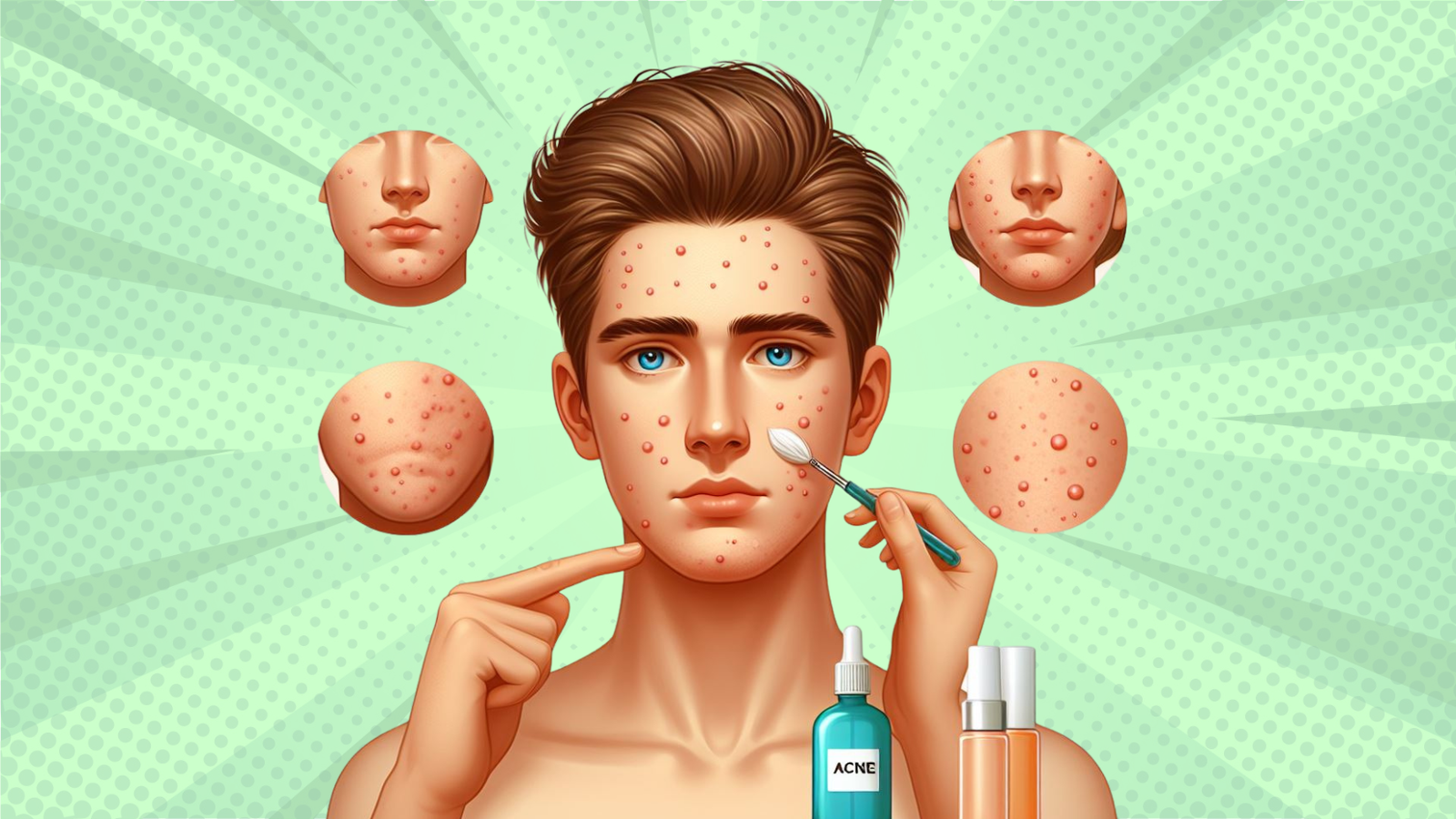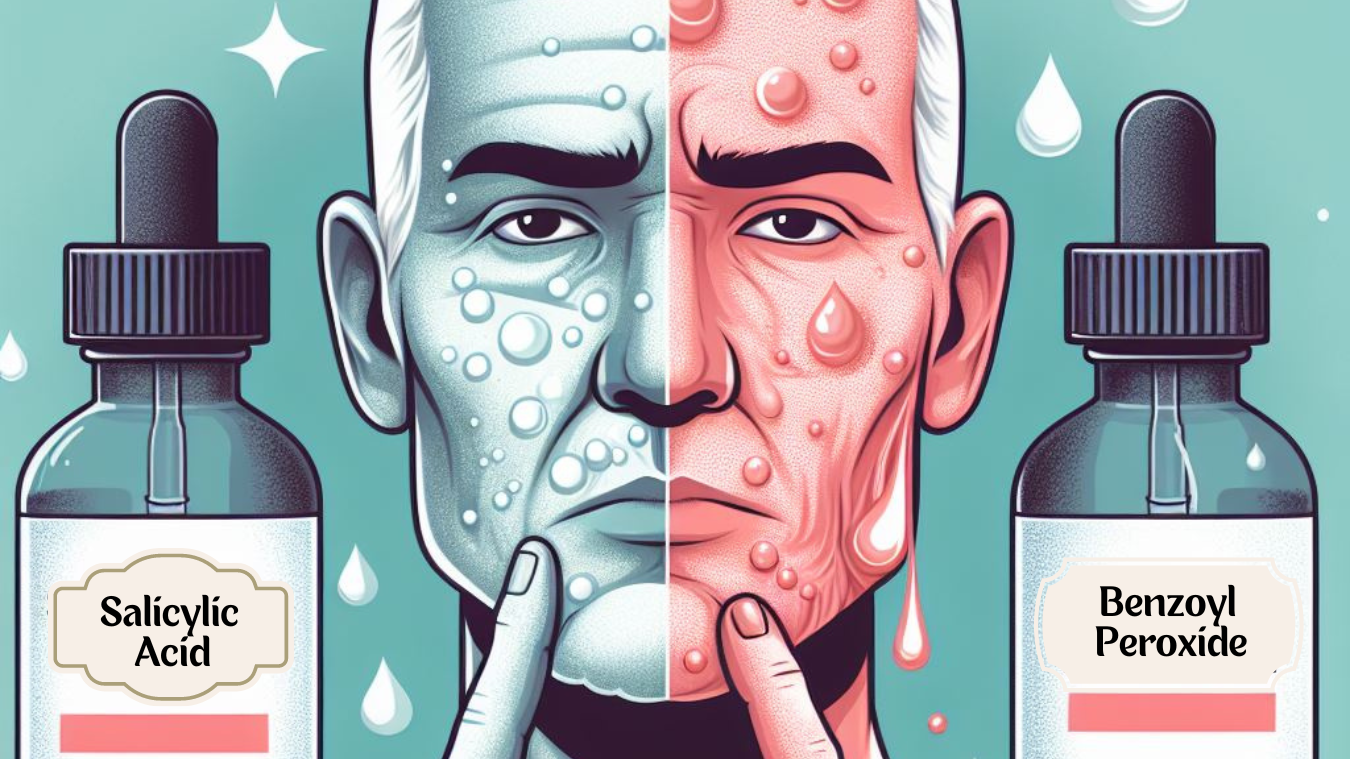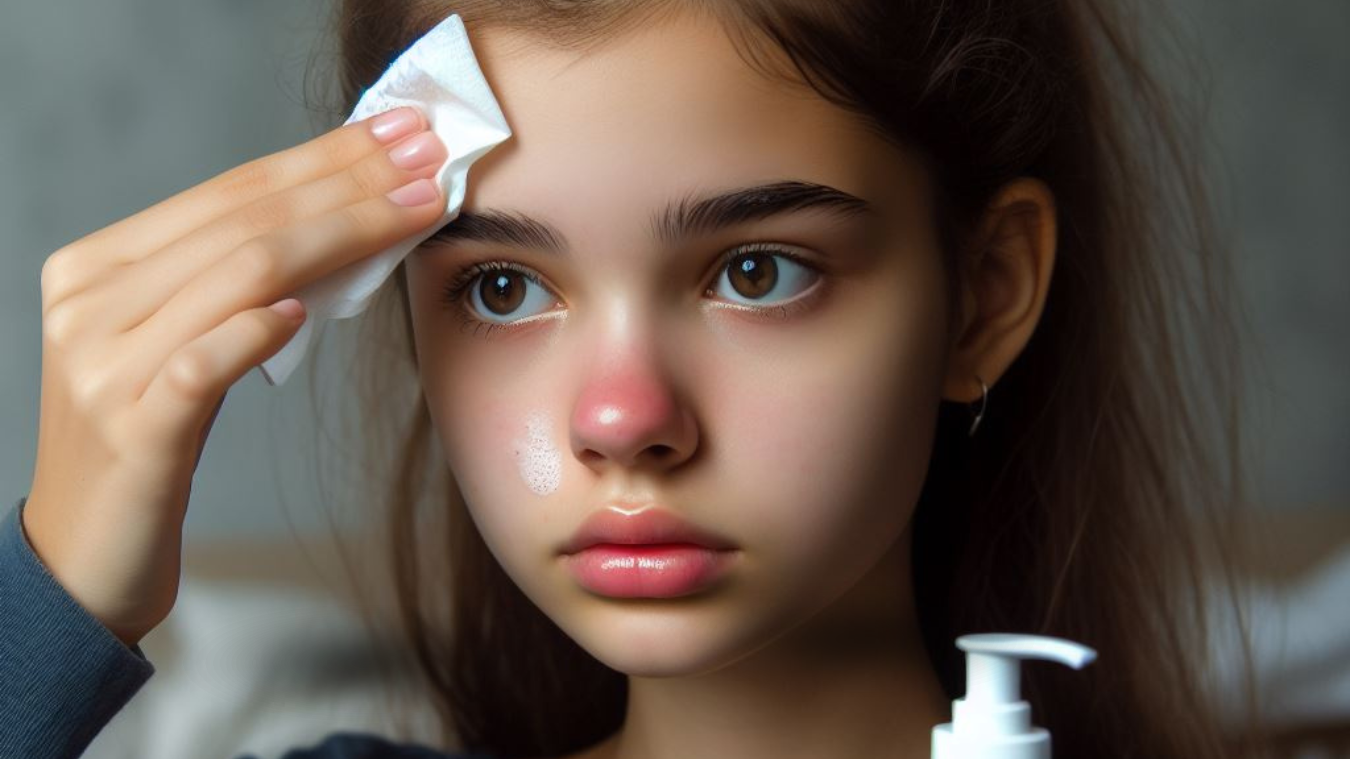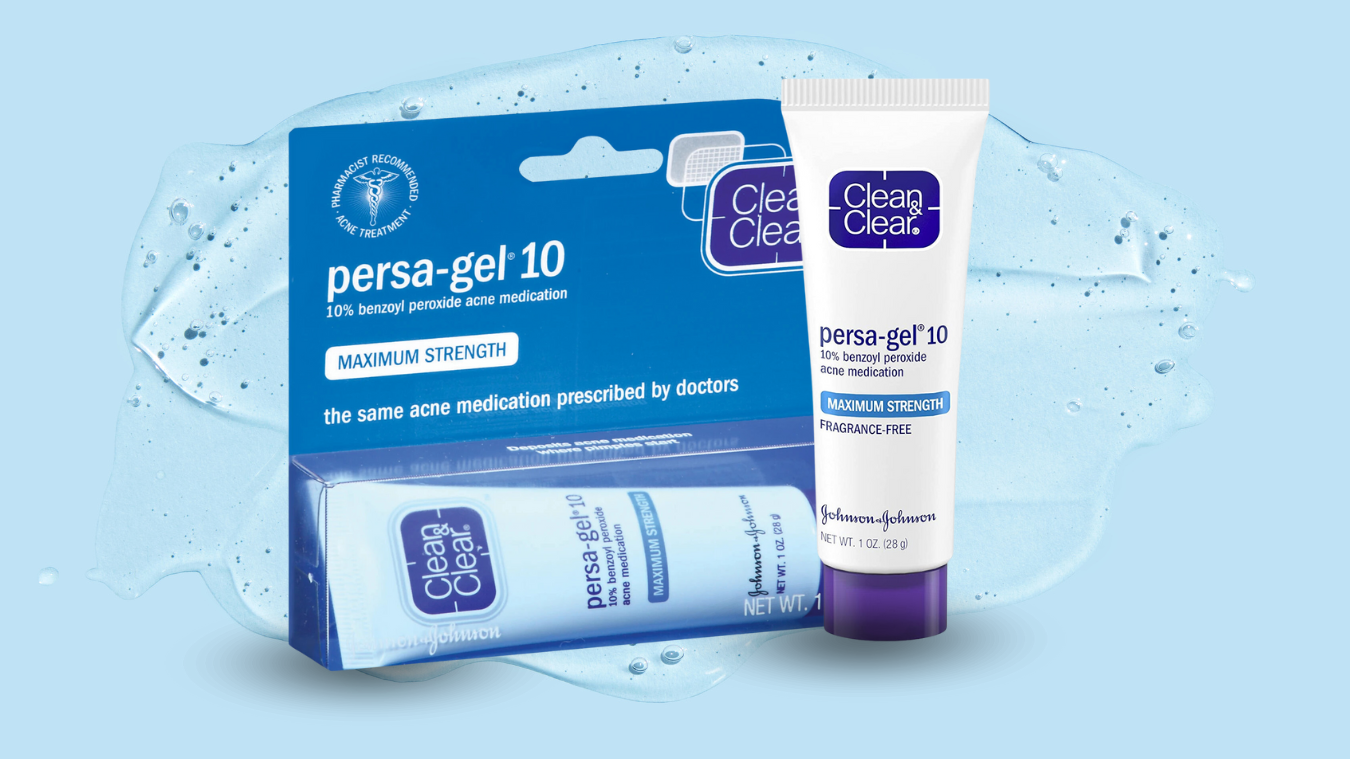Ever wondered what benzoyl peroxide really is? Well, it’s actually a powerhouse when it comes to tackling acne! You’ll find it in a bunch of over-the-counter products like gels, cleansers, and spot treatments, all designed to help with those pesky breakouts, whether they’re mild or moderate.
Now, here’s the deal with benzoyl peroxide: it’s fantastic at zapping away bacteria and clearing out your pores by getting rid of dead skin cells.
Also Read: Salicylic Acid vs. Benzoyl Peroxide For Acne Treatment
But hey, let’s keep it real – it’s not a miracle worker for everyone. There are some pros and cons to consider.
If you’re finding that your OTC benzoyl peroxide products aren’t quite cutting it, it might be time to have a chat with a dermatologist, you know, a skin care specialist.
They can offer personalized advice and perhaps suggest alternative treatments. So, don’t hesitate to reach out if you’re not seeing the results you’re after!
Does Benzoyl Peroxide Work Well for Acne?
Benzoyl peroxide is like a superhero for your skin, fighting off acne by tackling bacteria lurking beneath the surface. Plus, it’s awesome at clearing away dead skin cells and excess oil from your pores.
Now, if you’re dealing with those angry, red bumps that are filled with pus (you know, pustules, papules, cysts, and nodules), benzoyl peroxide is especially your go-to buddy. It’s like the secret weapon against that kind of inflammatory acne. Pretty cool, right?
Battling Cystic Acne with Benzoyl Peroxide
Cystic acne poses a formidable challenge due to its severity, presenting as hard bumps beneath the skin’s surface without clear “heads.”
P. acnes bacteria is a significant factor in cystic acne, but benzoyl peroxide, when used alongside prescription medications, can help combat it.
For effective treatment tailored to your needs, it’s crucial to seek guidance from a dermatologist if you’re grappling with this type of acne.
Benzoyl Peroxide for Blackheads and Whiteheads
Blackheads and whiteheads are types of acne, but they’re considered noninflammatory since they don’t cause the redness and swelling typical of other pimples.
While benzoyl peroxide works by killing acne-causing bacteria and reducing excess oil, it might not be the most effective solution for blackheads and whiteheads. Here’s why:
- How they form: Blackheads and whiteheads develop from clogged pores caused by dead skin cells and oil buildup. Benzoyl peroxide helps with this, but its primary strength lies in fighting bacteria.
- Better options: Topical treatments like salicylic acid or retinoids are often more effective for noninflammatory acne because they focus on exfoliating dead skin cells and preventing clogged pores.
Can benzoyl peroxide help with acne scars?
Acne scars can be a frustrating reminder of past breakouts, especially if you have inflammatory acne. While picking at blemishes is a big no-no, scars can still happen. And remember, sun exposure can make those scars worse – sunscreen is your BFF!
You might be wondering if benzoyl peroxide, a popular acne fighter, can also fade scars. It could help by getting rid of dead skin cells, but unfortunately, there’s not enough research to say it works for sure.
Don’t lose hope! There are other options to explore for reducing the appearance of acne scars. A dermatologist can help you find the best treatment plan for your skin.
How to Use Benzoyl Peroxide?
Let’s dive into the Benzoyl Peroxide playbook – here’s how to make the most out of it:
First off, it comes in a variety of forms, like creams, gels, washes, you name it! So, you’ve got options – pick what suits your skin and your vibe.
Benzoyl peroxide could be the key to clearer skin. But, with so many options, where do you start? Let’s break it down:
Step 1: Choose Your Fighter
- Zap Zits Fast: Face washes and foams are your daily defense, clearing breakouts and stopping new ones.
- Targeted Treatment: Creams and lotions let you focus on problem areas, used once or twice a day.
- Body Breakouts Begone: Body washes and soaps tackle acne on your chest, back, and beyond.
- Spot Swatters: High-strength gels are like ninja strikes against stubborn blemishes.
Step 2: Find Your Strength
- Newbie? Start Gentle: Begin with a lower concentration (2.5-5%) to avoid irritation.
- Sensitive Skin: Stick to lower strengths for your face.
- Tougher Areas: Your chest and back can often handle a stronger punch (up to 10%).
Remember: Always follow the instructions on your product, and if you’re unsure, ask your dermatologist for advice.
Benzoyl Peroxide: The Good, The Not-So-Good, Side Effects
Benzoyl peroxide is a powerful acne fighter, but like any superhero, it can have a few side effects. Especially when you first start using it, try applying once a day and gradually increasing if your skin handles it well. Start with a lower concentration to play it safe! Here’s the lowdown:
The Skin Situation: Benzoyl peroxide works by peeling away dead skin, oil, and bacteria. This can sometimes lead to dryness, redness, and some peeling.
A little itchiness and irritation are possible too. Pro tips: Skip benzoyl peroxide if you’re sunburned, and always moisturize afterward to combat dryness.
Beware the Bleaching: Benzoyl peroxide is notorious for staining clothes and hair. Wash your hands like a surgeon after applying and use old towels and pillowcases while using it. You might even want to skip it right before a sweaty workout to avoid transferring it.
Allergy Alert: While rare, allergic reactions to benzoyl peroxide can happen. If the treated area gets super red and irritated, ditch the product. But, if you experience severe swelling or trouble breathing, head to the emergency room ASAP – those could be signs of a serious reaction.
Note: Talk to your dermatologist if you have any concerns about side effects or using benzoyl peroxide for your acne. They can help you find the best way to use it safely and effectively.
Benzoyl Peroxide: Not For Everyone
While benzoyl peroxide is a great acne fighter for many, it might not be the best option if you have certain skin conditions:
Sensitive Skin Alert: If your skin easily gets red, irritated, or develops rashes, benzoyl peroxide could make things worse.
Eczema or Seborrheic Dermatitis: These conditions already cause skin irritation, and benzoyl peroxide might worsen the problem.
Pros of Benzoyl Peroxide for Acne
- Effective: Benzoyl peroxide kills acne-causing bacteria and reduces inflammation, making it helpful for mild to moderate acne.
- Over-the-counter: Easily accessible in various forms (gels, washes, creams) without the need for a prescription.
- Affordable: A budget-friendly option compared to many prescription acne treatments.
- Can prevent breakouts: Regular use may help keep acne at bay.
- Works with other treatments: Can be combined with retinoids or other topical treatments for enhanced results.
Cons of Benzoyl Peroxide for Acne
- Drying and irritating: May cause dryness, redness, peeling, and initial irritation, especially for sensitive skin.
- Bleaching effect: Benzoyl peroxide can bleach fabrics (clothing, towels, sheets).
- Not for everyone: Might not be as effective for severe acne or those with conditions like eczema.
- Takes time: Results might not be immediate and can take several weeks to see improvement.
- Sun sensitivity: Can make your skin more sensitive to the sun, so sunscreen use is essential.
Benzoyl Peroxide for Acne: Miracle or Myth?
Benzoyl peroxide: the acne treatment everyone’s heard of. But is it a miracle cure for clearer skin, or just another hyped-up product?
The truth is, benzoyl peroxide can be incredibly effective for many people, working to fight bacteria and clear those pesky breakouts.
However, it’s not a one-size-fits-all solution, and it does come with potential downsides like dryness and irritation. So, miracle or myth? It depends on your skin!
Why the hype, you ask? Well, besides being easy to find and budget-friendly, it’s a powerhouse against those pesky inflammatory acne spots and the scars they leave behind.
Pair it up with other treatments like topical retinoids, and you’ve got yourself a dream team! But hey, we’re all unique, right? What works wonders for one might not do the trick for another.
So, give any new acne product a fair shot for a few weeks before moving on to the next one. And if benzoyl peroxide isn’t cutting it or causing any drama, don’t hesitate to call in the pros – your friendly neighborhood dermatologist!
Frequently Asked Question
Q: Can benzoyl peroxide make my acne worse before it gets better?
A: Brace yourself, it’s possible! Benzoyl peroxide can sometimes cause a temporary increase in breakouts as it brings gunk to the surface. Don’t panic, this usually subsides within a few weeks. Hang in there!
Q: Benzoyl peroxide vs. salicylic acid – which acne warrior should I choose?
A: Think of it like this: Benzoyl peroxide is the bacteria-busting ninja, while salicylic acid is the master of unclogging pores. Both awesome, but they work differently. Your dermatologist can help you pick the best fighter for your breakout type.
Q: Help! Benzoyl peroxide turned my favorite towel orange. What gives?
A: Surprise! Benzoyl peroxide has a bleaching superpower (not just for zits). Use old towels while using it, and wash your hands super well after applying to avoid any unwanted color changes.
Q: Does benzoyl peroxide expire? Is it still okay to use?
A: Just like food, acne treatments have a shelf life. Check the expiration date on your product. Using expired benzoyl peroxide might be less effective and could even irritate your skin.
Q: I’m a beach bum. Can I use benzoyl peroxide and still soak up the sun?
A: Sunscreen is now your BFF! Benzoyl peroxide makes your skin extra sensitive to those rays. Slather on broad-spectrum sunscreen and reapply often, even if it’s cloudy. Think of it as protection for your future clear skin!
Q: Does the strength of benzoyl peroxide matter? Should I go for the highest percentage?
A: Not always! While a higher percentage might sound more powerful, it could also be more irritating. Start with a lower strength, and slowly increase if needed. Your skin will thank you!
Q: I’m team “more is better!” Can I slather on benzoyl peroxide for faster results?
A: Sadly, more isn’t always merrier with acne treatments. Using too much benzoyl peroxide can seriously dry out and irritate your skin. Follow the directions, and remember, consistency is key!
Q: Benzoyl peroxide is making my skin flake like crazy. Is this normal?
A: Some dryness and peeling are possible, especially when you first start using it. Gentle moisturizers are your new best friend. If the flaking is severe, talk to your dermatologist about adjusting your routine.



